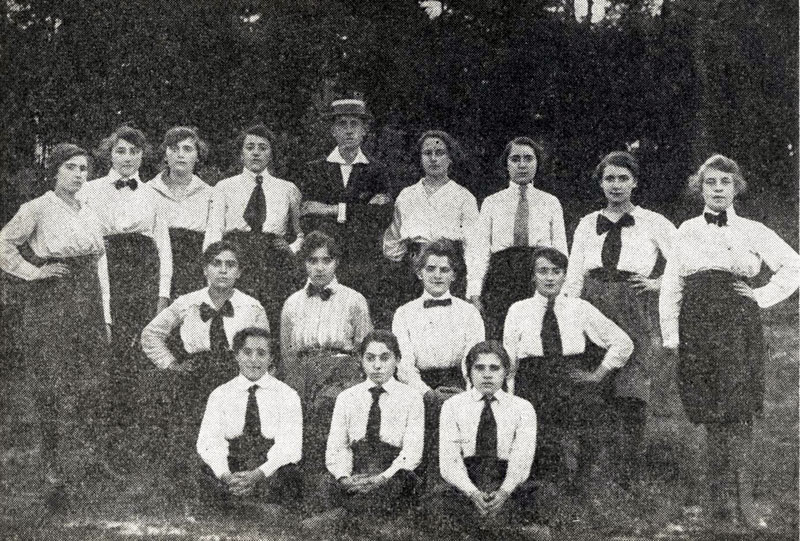Wolbrom Before the Holocaust
Culture and Sport
Music
Kleizmer Music
"Wolbrom was but a small and remote corner of the Jewish world in Eastern Europe where songs and music had been played for generations...The Kleizmer rose from the depth of Jewish existence, combining the secular and the sacred, drawing its power from the wealth of Jewish genius. The roots of the Kleizmer were ancient, and he lived among his people, for the sake of his people and through his people. Music was his trade, and he was dedicated to it. The Jewish Kleizmer in Eastern Europe was an enthused and captivating musician, an all around musician with heart and soul, in his flesh and blood. The Kleizmer – a grandson and great-grandson of a long line of Jewish musicians – drew his magnetism from a genuine eternal popular culture and from his musical talents. His musical instrument was a container into which he poured all his feelings, his soul, pain and joy...
In addition to Baruch Spalovatz’s being the Kleizmer, he was a man of tradition and a loyal Jew, like all Wolbromer Jews, and a family man. He had an advantage over other Kleizmers. Having had studied music in Krakow, he could read music. Thus he served as violinist and band leader. Later on he also directed the city’s fire brigade orchestra. We don’t know much about his life and family….He was born in Proszowice (Kielce District), and as a young man found his way to Wolbrom, where he worked at the milling business of Michael Lubling. He married a woman by the name of Eidel, and established the band. He was bearded, religious and honest.
...Weddings generated an exciting change in the rhythm of the monotony of daily life. During the wedding parties spontaneity was given free rein and all inhibitions were released from the hearts of people….As the bride was taking her seat, the time would come for the Kleizmer master to play a solo, to articulate his musical imagination, causing his audience to become especially sentimental and making them cry to the tune of the first notes….The picture changes suddenly as a sign is given and the Wedding March announces the arrival of the men and tears the bride out of her daydreaming, preparing her for the wedding ceremony. The merry march music leads the bride and groom to the Chuppa..."
M. Sh. Gshuri in Wolbrom Irenu (Our Town Wolbrom)
Sport
“After World War I, when Wolbrom youngsters began to awake to national renewal, a drastic change came about among the youth who aspired to reshape their lives. They did not want to continue in the ways of the older generation. In their eyes the old ways bore no future for them. Only a few could afford to study at the Beit Midrash, and most of the youngsters wanted to raise their heads and to straighten their backs. In this spirit they decided to set a new goal and to initiate physical education…"
Sh. Barkai in Wolbrom Irenu (Our Town Wolbrom)
Library
“Kultura library held some 2500 books. Most of them were in Yiddish, a certain part in Polish, a small number in Hebrew and in other languages. From time to time the board made efforts to get more books. They would organize parties and balls for the library: in summer – in the Miranovicz Public Park, and in winter – in the fire brigade hall. There were different suggestions on how to acquire books. The members’ dedication indeed resulted in a rise in the income. Then there was a debate what books should be bought. Most were in favor of Yiddish books, while the Zionists wanted Hebrew publications. The discussion was long and passionate. Finally, an agreement was reached: to buy 70% books in Yiddish, 15% in Polish, 10% in Hebrew, and the remaining in other languages.”
Sh. Barkai in Wolbrom Irenu (Our Town Wolbrom)




